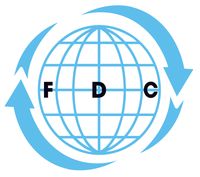تفاصيل الدورة
Event Date: 07th – 18th, January 2019Organizer: Foscore Development Center
Course Fee: $ 2,000, Ksh 140,000
About the course
This is a comprehensive 10 days M&E course that covers the principles and practices for results based monitoring and evaluation for the entire project life cycle. This course equips participants with skills in setting up and implementing results based monitoring and evaluation systems including M&E data management, analysis and reporting. The participants will benefit from the latest M&E thinking and practices including the results and participatory approaches. This course is designed to enable the participants become experts in monitoring and evaluating their development projects. The course covers all the key elements of a robust M&E system coupled with a practical project to illustrate the M&E ;
Target Participants
This course is designed for researchers, project staff, development practitioners, managers and decision makers who are responsible for project, program or organization-level M&E. The course aims to enhance the skills of professionals who need to research, supervise, manage, plan, implement, monitor and evaluate development projects.
Course duration
10 days
Course objectives
- Develop project results levels
- Design a project using logical framework
- Develop indicators and targets for each result level
- Track performance indicators over the life of the project
- Evaluation a project against the set results
- Develop and implement M&E systems
- Develop a comprehensive monitoring and evaluation plan
- Use data analysis software (Stata/SPSS/R)
- Collect data using mobile data collection tools
- Carryout impact evaluation
- Use GIS to analyze and share project data
Introduction to Results Based Project Management
- Fundamentals of Results Based Management
- Why is RBM important?
- Results based management vs traditional projects management
- RBM Lifecycle (seven phases)
- Areas of focus of RBM
Fundamentals of Monitoring and Evaluation
- Definition of Monitoring and Evaluation
- Why Monitoring and Evaluation is important
- Key principles and concepts in M&E
- M&E in project lifecycle
- Participatory M&E
Project Analysis
- Situation Analysis
- Needs Assessment
- Strategy Analysis
Design of Results in Monitoring and Evaluation
- Results chain approaches: Impact, outcomes, outputs and activities
- Results framework
- M&E causal pathway
- Principles of planning, monitoring and evaluating for results
M&E Indicators
- Indicators definition
- Indicator metrics
- Linking indicators to results
- Indicator matrix
- Tracking of indicators
Logical Framework Approach
- LFA – Analysis and Planning phase
- Design of logframe
- Risk rating in logframe
- Horizontal and vertical logic in logframe
- Using logframe to create schedules: Activity and Budget schedules
- Using logframe as a project management tool
Theory of Change
- Overview of theory of change
- Developing theory of change
- Theory of Change vs Log Frame
- Case study: Theory of change
M&E Systems
- What is an M&E System?
- Elements of M&E System
- Steps for developing Results based M&E System
M&E Planning
- Importance of an M&E Plan
- Documenting M&E System in the M&E Plan
- Components of an M&E Plan-Monitoring, Evaluation, Data management, Reporting
- Using M&E Plan to implement M&E in a Project
- M&E plan vs Performance Management Plan (PMP)
Base Survey in Results based M&E
- Importance of baseline studies
- Process of conducting baseline studies
- Baseline study vs evaluation
Project Performance Evaluation
- Process and progress evaluations
- Evaluation research design
- Evaluation questions
- Evaluation report Dissemination
M&E Data Management
- Different sources of M&E data
- Qualitative data collection methods
- Quantitative data collection methods
- Participatory methods of data collection
- Data Quality Assessment
M&E Results Use and Dissemination
- Stakeholder’s information needs
- Use of M&E results to improve and strengthen projects
- Use of M&E Lessons learnt and Best Practices
- Organization knowledge champions
- M&E reporting format
- M&E results communication strategies
Gender Perspective in M&E
- Importance of gender in M&E
- Integrating gender into program logic
- Setting gender sensitive indicators
- Collecting gender disaggregated data
- Analyzing M&E data from a gender perspective
- Appraisal of projects from a gender perspective
Data Collection Tools and Techniques
- Sources of M&E data –primary and secondary
- Sampling during data collection
- Qualitative data collection methods
- Quantitative data collection methods
- Participatory data collection methods
- Introduction to data triangulation
Data Quality
- What is data quality?
- Why data quality?
- Data quality standards
- Data flow and data quality
- Data Quality Assessments
- M&E system design for data quality
ICT in Monitoring and Evaluation
- Mobile based data collection using ODK
- Data visualization - info graphics and dashboards
- Use of ICT tools for Real-time monitoring and evaluation
- Principles of qualitative data analysis
- Data preparation for qualitative analysis
- Linking and integrating multiple data sets in different forms
- Thematic analysis for qualitative data
- Content analysis for qualitative data
- Manipulation and analysis of data using NVivo
Quantitative Data Analysis – (Using SPSS/Stata)
- Introduction to statistical concepts
- Creating variables and data entry
- Data reconstruction
- Variables manipulation
- Descriptive statistics
- Understanding data weighting
- Inferential statistics: hypothesis testing, T-test, ANOVA, regression analysis
Impact Assessment
- Introduction to impact evaluation
- Attribution in impact evaluation
- Estimation of counterfactual
- Impact evaluation methods: Double difference, Propensity score matching
GIS in M&E
- Introduction to GIS in M&E
- GIS analysis and mapping techniques
- Data preparation for geospatial analysis
- Geospatial analysis using GIS software (QGIS)
الموقع
استفسر عن هذه الدورة
يمكنك إضافة المزيد من الدورات التدريبية هنا.
سيتم حفظ القائمة.



